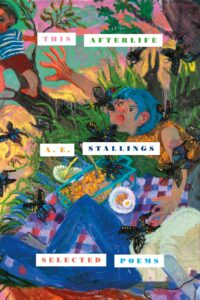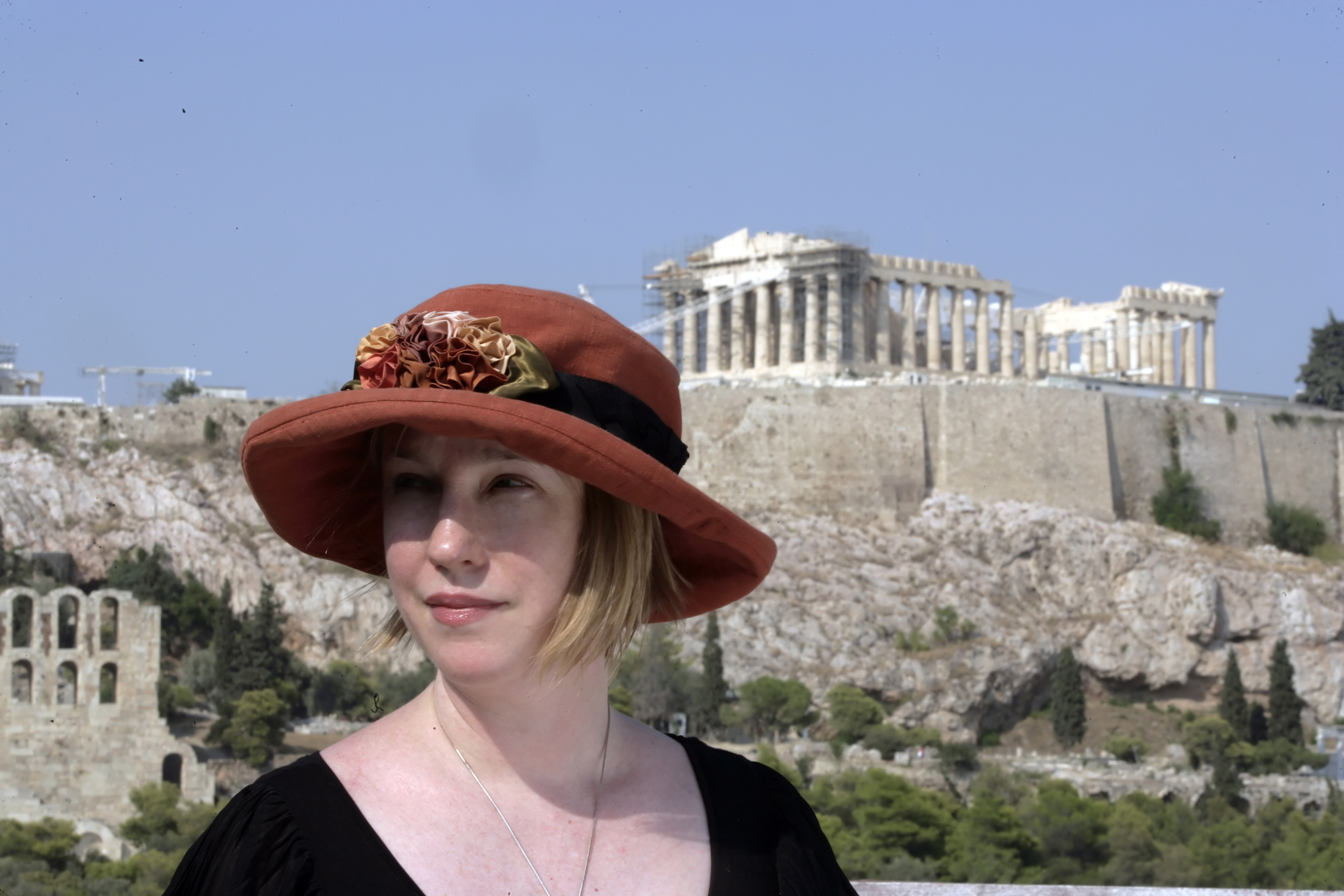You could call Alicia Stallings a language expert.
But the award-winning poet, who publishes as A.E. Stallings and translates classic poems from Greek and Latin in addition to writing original work, feels like she’s always learning.
“I believe that poets are developmentally stuck in the language acquisition phase of childhood,” says Stallings AB ’90. “It keeps you open to the strangeness of language, and it keeps you humble because you’re always in this child-like phase.”
Stallings started at the University of Georgia as an English major, but her course schedule soon skewed toward the classics. Latin gave new depth to epigrams and other turns of phrase used in English literature.
“Eventually, the head of the department, Professor Rick LaFleur, took me aside and said, ‘You’re taking an awful lot of classics courses. Maybe think about changing your major,’” Stallings says.
She did, and she didn’t look back.
In the Department of Classics, she found other students who were also interested in the past—a world we approach but can never truly enter.
“These were people who were very intellectually curious and didn’t necessarily fit into pigeonholes,” she says. “They gravitated to classics, where we studied something that wasn’t immediately useful or immediately trendy.”
 As a Latin major, she studied the meter of language and classic mythology, elements which became the foundation of her poetry. Her classical allusions tie into modern life, and her knowledge of other languages has influenced her approach to poems in English. The artistic community in Athens also supported her development.
As a Latin major, she studied the meter of language and classic mythology, elements which became the foundation of her poetry. Her classical allusions tie into modern life, and her knowledge of other languages has influenced her approach to poems in English. The artistic community in Athens also supported her development.
“In Athens, if you’re a young person, you could take your artistic ambitions very seriously,” Stallings says. “You’re in a town where other artists take themselves very seriously, and there’s something exciting about being in a town where those things can come true.”
Now residing in the original Classic City—Athens, Greece—Stallings is a poet that the art world takes seriously.
She was a finalist for the Pulitzer Prize in 2019, and in 2011 was the recipient of a MacArthur Foundation “Genius Grant” and a Guggenheim Foundation fellowship. And while those fellowships provided financial support, the recognition and spotlight she received went further. In June 2023, Stallings was announced as the next Oxford Professor of Poetry.
“You’re not always going to get the pats on the back, but having someone say, ‘Yes. This work is important; it’s valuable,’ can give you new courage to keep going,” Stallings says.
Her most recent selection, This Afterlife: Selected Poems, was published in late 2022 and features cover artwork from alumna artist Ashley Norwood Cooper AB ’95. The selection includes previously published poems as well as ones that did not make the cut for past collections, and compiling it was a chance for Stallings to reflect on her growth as an artist and reintroduce past work.
“My feeling is that with poems I wrote a long time ago, they were written by someone else, and it’s not really my place to change her decision,” Stallings says. “And then, if there’s a lesson that I’ve learned from this poem, you know, I carry that forward into new poems.”


